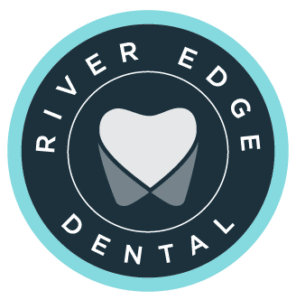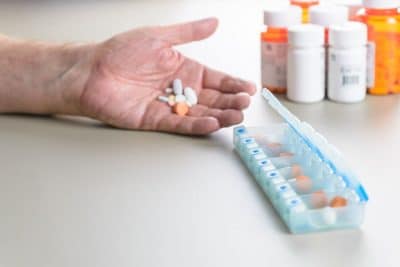In January, the FDA issued a warning: buprenorphine medicines dissolved in the mouth are associated with dental problems. These include tooth decay, cavities, oral infections, and tooth loss. Many people who developed these problems had no previous history of dental issues.
This reminds us that medications can harm your dental health. In most cases, as with dissolvable buprenorphine, doctors and the FDA recommend you keep taking your medications. However, you should take extra care of your teeth and gums when faced with these risks.
Buprenorphine and Dental Health Problems
After identifying 305 documented dental health problems (131 severe cases) linked to buprenorphine use, the FDA issued its warning. The most common use of buprenorphine is for opioid use disorder (OUD). Essentially, people who are addicted to opiates—often prescription opiates. Buprenorphine helps reduce the pleasure associated with using opioids and control withdrawal effects. However, as an opiate, buprenorphine is sometimes used as a pain reliever.
The type of buprenorphine associated with dental problems dissolves in the mouth. This helps patients because swallowed tablets don’t deliver enough medication in the blood. However, the medication could be harmful to teeth. Buprenorphine is acidic, measuring 3.4 pH when dissolved in water. With this medication, people often take it multiple times a day. Unlike pills, they hold the acidic medication in their mouth for a prolonged period (9 minutes on average, according to a study).
The FDA does not recommend stopping taking dissolving buprenorphine. Instead, the FDA recommends that you swish your mouth with water after the tablet fully dissolves. Because the acid can soften your enamel, the FDA recommends waiting one hour after the tablet dissolves before brushing your teeth. It also suggests that you schedule a checkup with your dentist after starting the medication.
Many Medications Affect Your Dental Health
Although this particular alert is new, many medications can contribute to dental health problems. Here are some of the common ways that medicines can impact your dental health, along with a few example medications associated with the risk.
Acidic Medications
Although your tooth enamel is very strong, it is vulnerable to acidic attack. Anything with a pH under about 5.5 can dissolve tooth enamel. In addition to buprenorphine, acidic medications include aspirin and some asthma medications. With asthma medications, the problem may not be the medication itself. Instead, asthma medications may increase the severity of GERD (gastroesophageal reflux disease), in which stomach acid boils up into your throat and mouth. This can potentially damage your teeth.
Dry Mouth
Dry mouth (xerostomia) is one of the most common side effects of medication use. It can be annoying to have a dry mouth. In addition, it can be dangerous to your teeth. Saliva protects your teeth. It can buffer acids that enter your mouth, making them less harmful. Saliva also contains antibacterial compounds that help suppress the growth of oral bacteria.
Common medications that can increase dry mouth include antidepressants and chemotherapy drugs.
Immune Suppression
Some medications suppress your immune system. In some cases, this is deliberate, such as for drugs treating rheumatoid arthritis or other auto-immune disorders. Other times, immune suppression is an unpleasant side effect. In addition to deliberate immunosuppressive medications, chemotherapy and other cancer medications can cause this effect.
Fungal Infections
We have many fungal organisms in our mouths. They usually stay in check because of the bacteria that also live in your mouth. However, taking antibiotics can sometimes kill off so many bacteria that fungal infections run wild in your mouth—fun fact: our original antibiotics came from fungi. The fungi developed the bacteria-killing compounds to take over in environments where the two organisms competed, such as your mouth.
Sugary Medications
Sometimes medications aren’t acidic, but they can cause the mouth to become more acidic by introducing more sugar. Oral bacteria take sugars from your mouth and eat them, excreting acid in response. Any medication in syrup form likely has significant sugar content unless it explicitly says it is sugar-free.
Bone Weakening
Some medications can reduce the density and strength of your bones. This can increase your risk of tooth loss. Bisphosphonates and monoclonal antibodies are associated with these types of bone problems.
Let Us Help You Maintain Good Dental Health
If your medication has side effects that can potentially cause dental problems, you must take proper steps to protect yourself against these effects. In addition to the short-term pain and expense of dental problems, poor oral health can have a long-term impact on your lifespan. People with poor oral health are more likely to develop cardiovascular problems and die younger.
To head off these risks, please call (201) 343-4044 or email River Edge Dental today to request an appointment with one of our River Edge, NJ dentists.
The post 6 Ways Medications Can Impact Your Dental Health appeared first on River Edge Dental.

